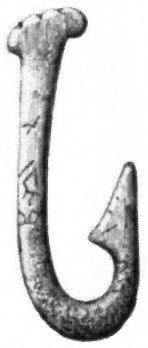History of fishing
History of Fishing
The history of fishing dates back to the Upper Paleolithic period, around 40,000 years ago. Archaeological evidence, including shell middens, discarded fish bones, and cave paintings, suggests that early humans practiced fishing in both freshwater and marine environments for subsistence. This article explores the evolution of fishing from ancient times to the modern era, highlighting significant developments and technologies that have shaped the practice.
Prehistoric Fishing[edit | edit source]
The earliest evidence of fishing can be traced back to regions such as the Middle East, Scandinavia, and East Asia, where the remains of fish and fishing tools have been found in archaeological sites. Early humans used simple tools such as spears, nets, and fish traps made from natural materials like wood, bone, and fibers. The invention of the fish hook, made from bones, shells, or wood, marked a significant advancement in fishing technology, allowing for more efficient and selective fishing practices.
Ancient Civilizations[edit | edit source]
Fishing became a more organized activity in ancient civilizations such as Egypt, Mesopotamia, Greece, and Rome. These societies developed sophisticated fishing techniques and tools, including various types of nets, traps, and hooks. Fishing was not only a source of food but also played a significant role in the economy and culture, with fish being traded as a commodity and featured in religious and social rituals.
Middle Ages[edit | edit source]
During the Middle Ages, fishing in Europe saw further advancements with the introduction of the fish weir and the pound net, which allowed for the mass capture of fish. Coastal communities thrived on fishing, and inland fishing in rivers and lakes also became more prevalent. The period also saw the emergence of fish farming or aquaculture, particularly in monastic communities, as a means to ensure a steady supply of fish.
The Age of Exploration[edit | edit source]
The Age of Exploration in the 15th and 16th centuries led to the expansion of fishing territories and the discovery of new fishing grounds in the Atlantic Ocean, including the rich cod fisheries off the coast of Newfoundland. This era also saw the development of the fishing industry in North America, where European settlers and indigenous peoples engaged in extensive fishing activities.
Industrial Revolution[edit | edit source]
The Industrial Revolution brought significant changes to the fishing industry with the introduction of steam-powered boats and the invention of modern fishing gear such as trawls and purse seines. These advancements allowed fishermen to venture further into the ocean and catch larger quantities of fish, leading to the growth of commercial fishing and the global fish trade.
20th Century to Present[edit | edit source]
The 20th century saw continued technological advancements in fishing, including the use of motorized boats, sonar for locating fish, and more efficient fishing gear. However, the century also brought increased awareness of the environmental impacts of overfishing and the need for sustainable fishing practices. In response, various international agreements and regulations have been implemented to protect fish stocks and marine ecosystems.
Conclusion[edit | edit source]
The history of fishing is a testament to human ingenuity and adaptation, reflecting the changing relationship between humans and the natural world. From ancient spears to modern trawlers, fishing technologies have evolved to meet the dietary, economic, and cultural needs of societies around the globe. As we move forward, the challenge remains to balance the demands of fishing with the preservation of aquatic environments for future generations.
Search WikiMD
Ad.Tired of being Overweight? Try W8MD's physician weight loss program.
Semaglutide (Ozempic / Wegovy and Tirzepatide (Mounjaro / Zepbound) available.
Advertise on WikiMD
|
WikiMD's Wellness Encyclopedia |
| Let Food Be Thy Medicine Medicine Thy Food - Hippocrates |
Translate this page: - East Asian
中文,
日本,
한국어,
South Asian
हिन्दी,
தமிழ்,
తెలుగు,
Urdu,
ಕನ್ನಡ,
Southeast Asian
Indonesian,
Vietnamese,
Thai,
မြန်မာဘာသာ,
বাংলা
European
español,
Deutsch,
français,
Greek,
português do Brasil,
polski,
română,
русский,
Nederlands,
norsk,
svenska,
suomi,
Italian
Middle Eastern & African
عربى,
Turkish,
Persian,
Hebrew,
Afrikaans,
isiZulu,
Kiswahili,
Other
Bulgarian,
Hungarian,
Czech,
Swedish,
മലയാളം,
मराठी,
ਪੰਜਾਬੀ,
ગુજરાતી,
Portuguese,
Ukrainian
Medical Disclaimer: WikiMD is not a substitute for professional medical advice. The information on WikiMD is provided as an information resource only, may be incorrect, outdated or misleading, and is not to be used or relied on for any diagnostic or treatment purposes. Please consult your health care provider before making any healthcare decisions or for guidance about a specific medical condition. WikiMD expressly disclaims responsibility, and shall have no liability, for any damages, loss, injury, or liability whatsoever suffered as a result of your reliance on the information contained in this site. By visiting this site you agree to the foregoing terms and conditions, which may from time to time be changed or supplemented by WikiMD. If you do not agree to the foregoing terms and conditions, you should not enter or use this site. See full disclaimer.
Credits:Most images are courtesy of Wikimedia commons, and templates, categories Wikipedia, licensed under CC BY SA or similar.
Contributors: Prab R. Tumpati, MD




